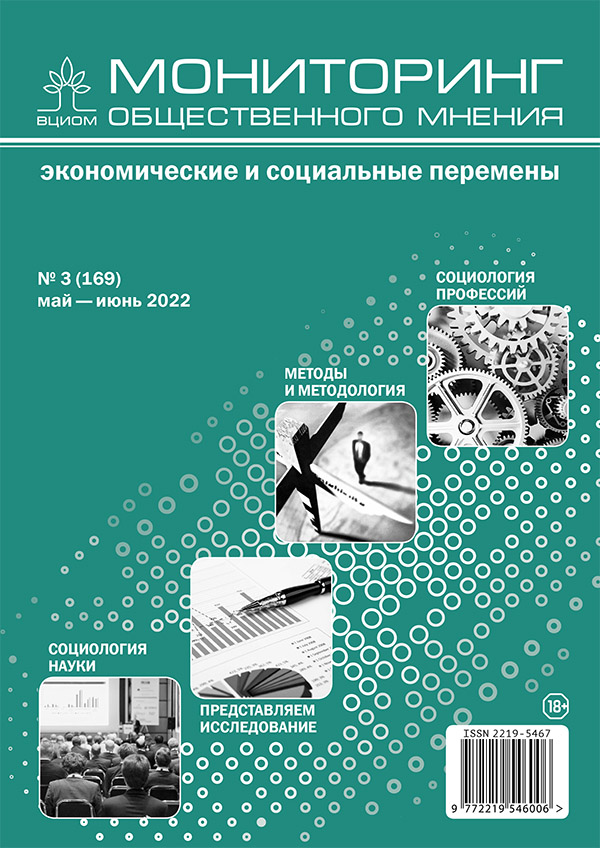The Impact of the COVID-19 Pandemic on Cultural Organizations: The Case of Russia
DOI:
https://doi.org/10.14515/monitoring.2022.3.2109Keywords:
crisis digitalization, cultural organizations, autonomy of cultural organizations, COVID-19 pandemic, adaptation strategiesAbstract
The article focuses on adaptation strategies that cultural organizations invented and applied during the COVID-19 pandemic. The study was conducted in 2021 in St. Petersburg based on a mixed methodology. The data was collected in theatres, museums, libraries, and creative spaces using questionnaires, expert interviews, and webometrics of social networks of the organizations. For the analysis, we employed the concepts of network society and autonomy. The study revealed a clear trend typical for most organizations — a forced transition to an online format, followed by the development of adaptation strategies in the face of severe restrictions. The key difficulties were the weakness of the material and technical base and the lack of competencies and specialists to produce content and attract an audience online. The crisis of digitalization has exposed the structural complexities associated with the (un)willingness to transform the former autonomy and work with the new requirements of the network society, which involve the reduction of intermediaries (“uberization of culture”) and the loss of former communities. We have identified three strategies for adapting to the new normal. The first is deepening digitalization used by libraries that were active online even before the pandemic. They turned out in the most advantageous position, building on and expanding the previously developed digital activity. The second strategy is hybrid and used by museums, which, on the one hand, have stepped up the digitization of their collections and have begun to use new formats, such as broadcasts from previously closed repositories. However, on the other hand, they have maintained a connection with live visitors as a key direction for their future development. The third strategy is the strategy of autonomy from digitalization. It is inherent in theaters, for which the transition to online has proven to be the most challenging and sometimes impossible. To feel and understand the reaction of the “indifferent viewer”, we had to develop new formats that involve the viewer’s involvement and feedback.
Downloads
Published
How to Cite
Issue
Section
License
Copyright (c) 2022 Monitoring of Public Opinion: Economic and Social Changes Journal (Public Opinion Monitoring) ISSN 2219-5467

This work is licensed under a Creative Commons Attribution-NonCommercial-ShareAlike 4.0 International License.






